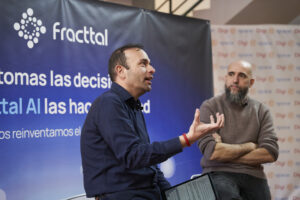Sergio Fajardo’s doctorate thesis was in probability logic, a dry branch of mathematics that juggles with the possibility of multiple truth values and, by extension, that vast grey area between black and white. In other words, in a campaign where insults are expected to fly and multiple takes on history are going to be advanced, Fajardo may have found his moment in Colombian politics.
Urbane, inclusive, media-savvy, and sporting long wavy locks of hair, Fajardo’s image in the public doesn’t gel with the fact that for much of his early life he had lived as an academic and a maths professor. Having worked at the peace facilitation commission in Antioquia, and being approved both by Samper and Uribe in his time there, Fajardo has worked his way up through the politics of Antioquia where he was born and spent most of his life.
Finally leaving his intellectual posts (which included stints in journalism and science education among others) in 1999, Fajardo put himself into the political ring for good. His first foray saw him lose the 2000 mayoral election to Luis Perez, but the turnout for a candidate refreshingly free of ideology and party politics was encouraging enough for him to try once again in 2004. Fajardo won that race handily and was mayor of Medellin for a 4-year term whereby the city underwent a renaissance, shedding its violent past in favour of investments in education, urban planning and transportation.
His policies won over the sceptics and won him international acclaim for the manner in which the city was transformed in such a short time. However, despite his popularity, paisa politics reared its ugly head and a vicious campaign in 2008 left Fajardo once again on the outside.
After a brief recess in journalism once again, Fajardo threw himself onto the national stage by running for President in 2010 under the banner of ‘Committed to Citizens of Colombia’ though successful alliances couldn’t be formed for him to gain enough support from his political colleagues. He chose instead the Governorship of Antioquia in 2011 and served once again as a popular leader in the region.
He now stands as the candidate for the alliance between the Green Party and Polo, an alliance that hopes to capitalise on Fajardo’s fresh and popular brand. Perhaps the only thing in Fajardo’s way is a black and white election where emotions trump reason and a populace unenervated by his uniting message. The truth is grey for Fajardo. Come election time, he may be hoping to turn it green.


